The Hopes and Joys of Black Women in the World
Alum News
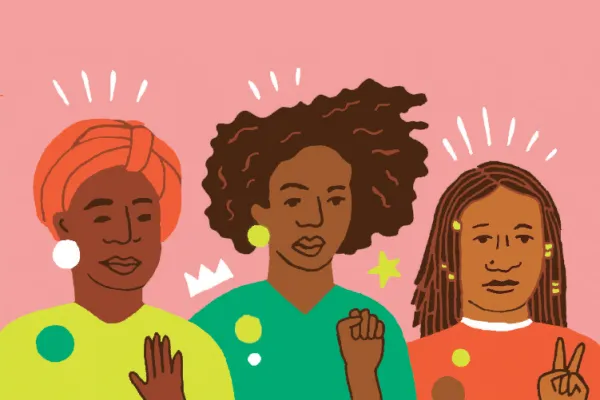
Published March 12, 2019
Caroline Clark ’85
WHAT EXCITES ME is how united we are. What gives me joy is how determined we are to propel ever forward, in support of each other. And what gives me hope is how resilient we have always been and continue to be. Our history is resplendent with the hardest-won triumphs. Sometimes that meant advancing to places our ancestors would never have deemed possible, from Smith College to the corporate boardroom and the White House. Other times it meant overcoming obstacles designed to break us, from the layered atrocities of slavery to the racist and sexist brutality that still shapes so much of our lives. To be clear, we must still fight for even the most basic equal rights, from our very safety to the sanctity of our vote.
Martha Southgate ’82
I FIND JOY in the ways that black women are contributing to the cultural life of the United States, despite the immense challenges we face. There are so many women to cite working across all art disciplines and media that I hesitate to single anyone out. But look around—we are everywhere.
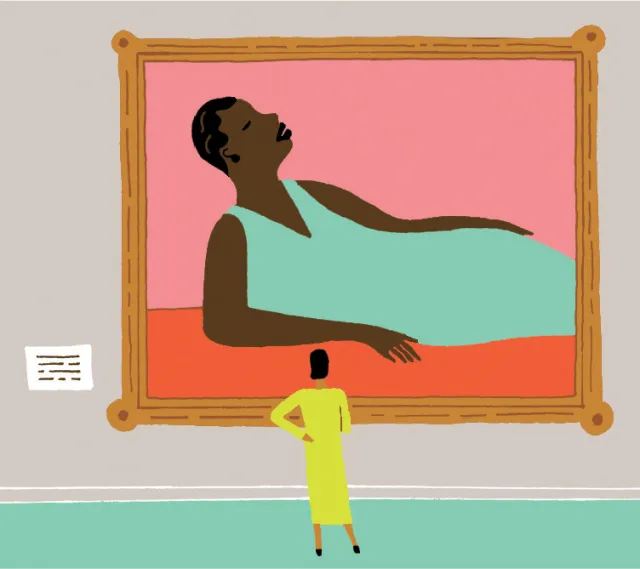
Joyce Young ’75
INSPIRATION IN BOOKS
Citizen: An American Lyric by poet Claudia Rankine
Books by antiracist educator Robin DiAngelo (White Fragility: Why It’s So Hard for White People to Talk About Racism; What Does It Mean to Be White?)
Becoming by Michelle Obama
Sing, Unburied, Sing: A Novel and other books by Jesmyn Ward
Thick: And Other Essays by sociologist Tressie McMillan Cottom
Eloquent Rage: A Black Feminist Discovers Her Superpower by Brittney Cooper
When They Call You a Terrorist: A Black Lives Matter Memoir by Patrisse Khan-Cullors and asha bandele
Stephanie Mickle ’94
WHAT EXCITES ME is to see black women today running for office at all levels and seeing especially the confidence they are exuding that says “I belong here.”
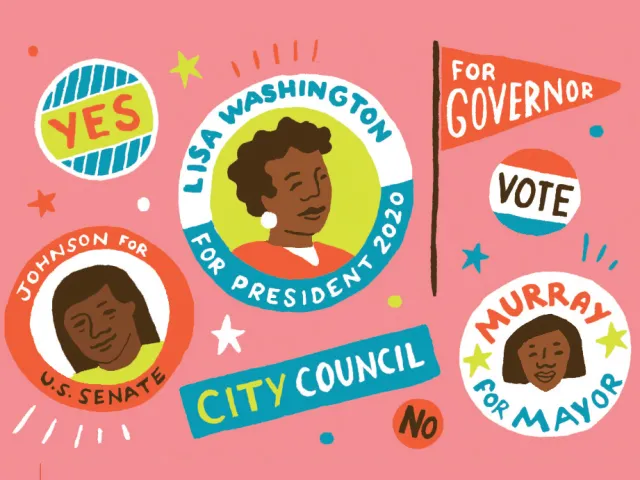
Deborah Archer ’93
I SEE HOPE EVERYWHERE. We see record participation by black women in the political process, unprecedented electoral success by black women in Congress and legislatures around the country and powerful black women activists pushing our country closer to its stated ideals. At the end of the day, I am hopeful because I know what black women have already overcome and achieved. When I see what is behind us, I can’t help but be confident and inspired by what lies ahead of us.
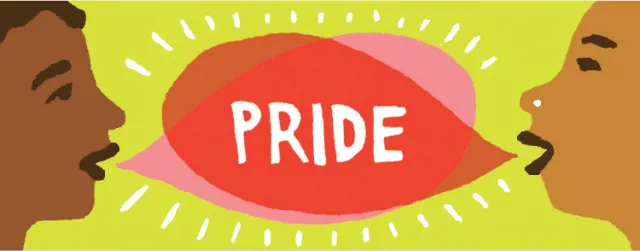
Billy Dean Thomas (Olivia Mcclendon ’14)
I AM VERY EXCITED that black women—as well as folks that are “woman adjacent,” such as black female-bodied but gender-nonconforming and trans folks—are in more leadership positions, creating their own positions and are shifting the perspectives in white-dominant spaces, even if it’s one drop at a time. I get a ton of joy from seeing a black woman who supports the upward mobility of black women and queer people of color win a seat in Congress, win an Emmy, a Grammy or be given a platform like HBO to tell the wide range of black narratives and shed light on our brilliance.
Sabine Jean ’11
RIGHT NOW, I love the fact that Black Girl Magic is a movement. It excites me to see black women lifting each other up; it’s especially motivating when it comes from the younger generations. Also, people of all races and genders are beginning to understand the intersectionality of the black female.
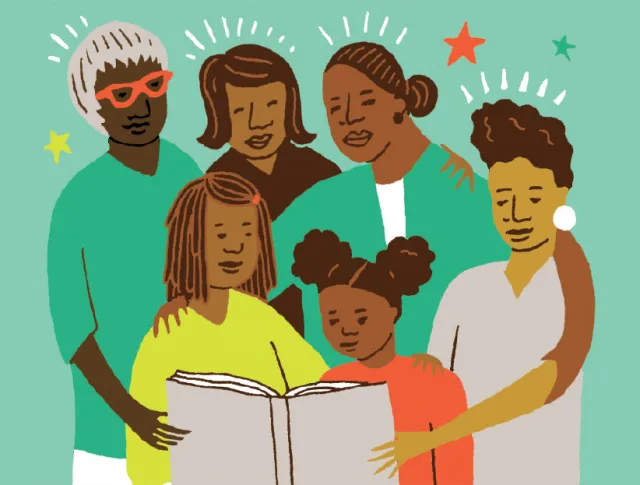
Charlise Lyles ’81
DISCRIMINATED AGAINST, ignored, dismissed and ridiculed, still, in every shade of excellence, we rise. Beyond media over-sexualization of our image character. We rise. Beyond environments that train us to limit ourselves to motherhood and poverty. We rise. Beyond workplaces that force glass ceilings down on our heads in exchange for privileged white-male mediocrity. We rise. The evidence cannot be denied, from former first lady of the United States Michelle Obama to the incredible mothers of NBA and NFL athletes to Rensselaer Polytechnic Institute President Shirley Ann Jackson to former Secretary of State Condoleezza Rice. In every sphere, we rise and will continue to rise. The Oval Office cannot be far away.
This story appears in the Spring 2019 issue of the Smith Alumnae Quarterly.
SMITH ALUMNAE QUARTERLY
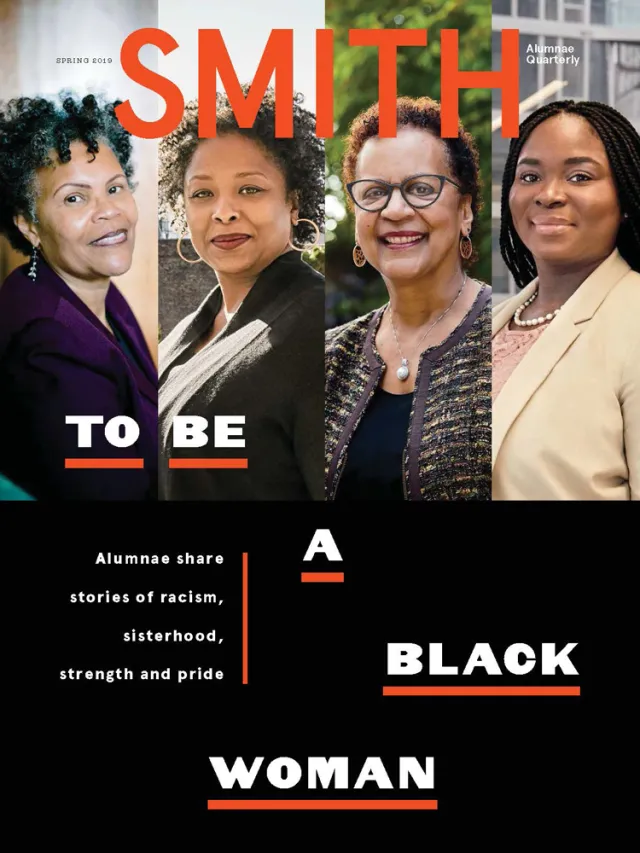
To Be a Black Woman: Alumnae Share Stories of Racism, Sisterhood, Strength and Pride
Deborah Archer ’93, “I’ve Picked a Lane. It’s Racial Justice.”
Billy Dean Thomas ’14, “I Felt Like I Was Being Tokenized”
Caroline Clark ’85, “I Am Not Black or a Woman. I’m a Black Woman”
Charlise Lyles ’81, “Who came to soothe my soul? All my Black sisters”
Lori Tharps ’94, “I Yearned for a Comfort and Confidence in My Blackness”
April Simpson ’06, “If we listen to how others define us, we remain stuck” Q&A with Sandra Williams ’75, senior vice president at CBS Television
Deanna Dixon ’88, “I’m Proud That Our Students Hold Us Accountable”
Joyce Young ’75, “Challenging the Status Quo by Writing My Truth”
Sabine Jean ’11, “Am I the Only Black Person in Here?”
Vickie Shannon ’79, “Racism Is Their Problem—Not Yours”
Stephanie Mickle ’94, “Black Women Can Rally Voters, Influence Elections and Win”
Illustrations by Andrea Pippins